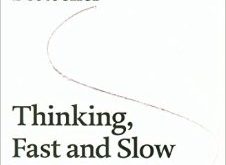On the eve of the Ukraine war, 55 percent of German gas came from Russia. There’s no question that quickly cutting off, or even greatly reducing, this gas flow would be painful. But multiple economic analyses … have found that the effects of drastically reducing gas imports from Russia would be far from catastrophic to Germany … As some readers may remember, early last decade much of southern Europe faced a crisis as lending dried up, sending interest rates on government debt...
Read More »Russian soldiers in Ukraine — the ugly truth
Russian soldiers in Ukraine — the ugly truth [embedded content]
Read More »John Snow and the birth of causal inference
John Snow and the birth of causal inference [embedded content] If anything, Snow’s path-breaking research underlines how important it is not to equate science with statistical calculation. All science entails human judgment, and using statistical models doesn’t relieve us of that necessity. Working with misspecified models, the scientific value of statistics is actually zero — even though you’re making valid statistical inferences! Statistical models are no...
Read More »Interview with Josh Angrist
Interview with Josh Angrist .[embedded content]
Read More »Expected utility theory — a severe case of transmogrifying truth
Expected utility theory — a severe case of transmogrifying truth Although the expected utility theory is obviously both theoretically and descriptively inadequate, colleagues and microeconomics textbook writers all over the world gladly continue to use it, as though its deficiencies were unknown or unheard of. Daniel Kahneman writes — in Thinking, Fast and Slow — that expected utility theory is seriously flawed since it doesn’t take into consideration the...
Read More »Russian war crimes — Bucha 2022
Russian war crimes — Bucha 2022 .[embedded content] Fifty years ago, Olof Palme had this to say about this kind of atrocities: [embedded content]
Read More »Multilevel modeling (student stuff)
Multilevel modeling (student stuff) .[embedded content]
Read More »Les crimes de guerre de Poutine en Ukraine
Les crimes de guerre de Poutine en Ukraine Des scènes macabres dans une ville dévastée par les combats. Les corps d’au moins vingt hommes portant des vêtements civils gisaient, samedi 2 avril, dans une rue de Boutcha, au nord-ouest de Kiev, que les soldats ukrainiens viennent de reprendre aux forces russes, a constaté sur place un journaliste de l’Agence France-Presse … Seize de la vingtaine de cadavres découverts se trouvaient sur le trottoir ou sur le...
Read More »La Grande Bellezza
.[embedded content] Un capolavoro!
Read More »Putin’s Russia and France’s Far Right
Putin’s Russia and France’s Far Right In many of his books, pop histories whose conclusions have been vigorously contested by academic historians, Zemmour displays a famously juvenile fandom of Napoleon and promotes an imperial conception of power. In 2018, he said that he dreams of a French Vladimir Putin, a man who “takes a country that was an empire, that could have been a great power, and tries to restore it.” He also wrote in his 2016 book that...
Read More » Lars P. Syll
Lars P. Syll




